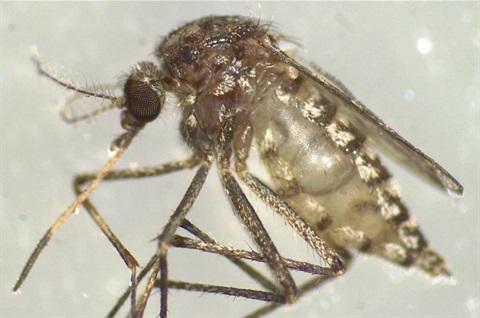Mosquito activity following recent rain
Published on 11 February 2022

The Shire utilises integrated pest management principles to respond to mosquitoes, which includes surveillance (larvae and adults), a sentinel chicken bleeding program, community education, larviciding and, in certain circumstances, adulticiding.
What are we doing:
1. Checking standing water and treating for mosquito larvae: Did you know that mosquitos have adapted to breed in a wide variety of environments, including fresh, polluted and saltwater? The Shire's Environmental Health Officers have been monitoring standing bodies of water around the town for any mosquito larvae and treating were required. So far we have seen very limited mosquito breeding in drains, basins and flood water.
2. Setting adult mosquito traps: Adult traps have been set at various locations across the town. These have indicated increased activity of Aedes vigilax, the ‘saltmarsh mosquito’. The recent heavy rainfall resulted in higher-than-normal spring tides, which expanded the breeding habitat of this mosquito around Dampier Creek and across Roebuck Plans. Easterly winds help this mosquito travel into town. Over the weekend of February 12-13, we anticipate there will be a further increase in the number of saltmarsh mosquito around town due to the forecast of light easterly winds.
While many mosquitos prefer dawn and dusk feeding, the saltmarsh mosquito will often bite during the day - so it is important to cover up and use repellent even during daylight hours.
We have also seen some increase in activity of ‘backyard mosquitos’. These are generally ones that breed in containers that hold water. They do not tend to travel far from their breeding site.
3. Sentinel chicken surveillance program: Blood samples are routinely taken from our sentinel chicken flock, which acts as an early warning system for increase presence the mosquito borne diseases, West Nile Virus Kunjin Strain and Murray Valley Encephalitis.
What you can do:
Clean-up: remove anything that can hold water that mosquitos breed in. It may be as small as a pot plant, pet water bowl or disused tyre. Anything that can hold water for longer than three days can become a breeding site for mosquitos. If there are sites you are concerned about, please report it to the Shire.
Cover up: wear long, loose-fitting light-coloured clothing. Mosquitos can still bite through tight fitting clothing such as leggings.
Repel: use a DEET or picaridin based repellent. Citronella and other natural based repellents are not recommended as there is no evidence they can prevent mosquito borne disease.
The Shire's mosquito management page can be accessed here.